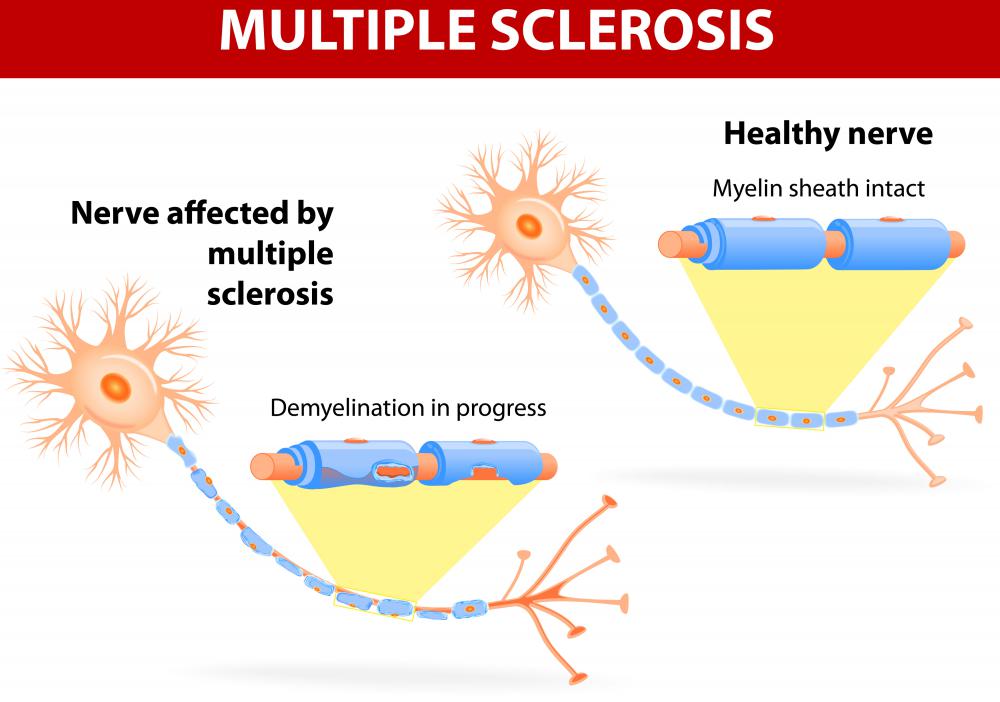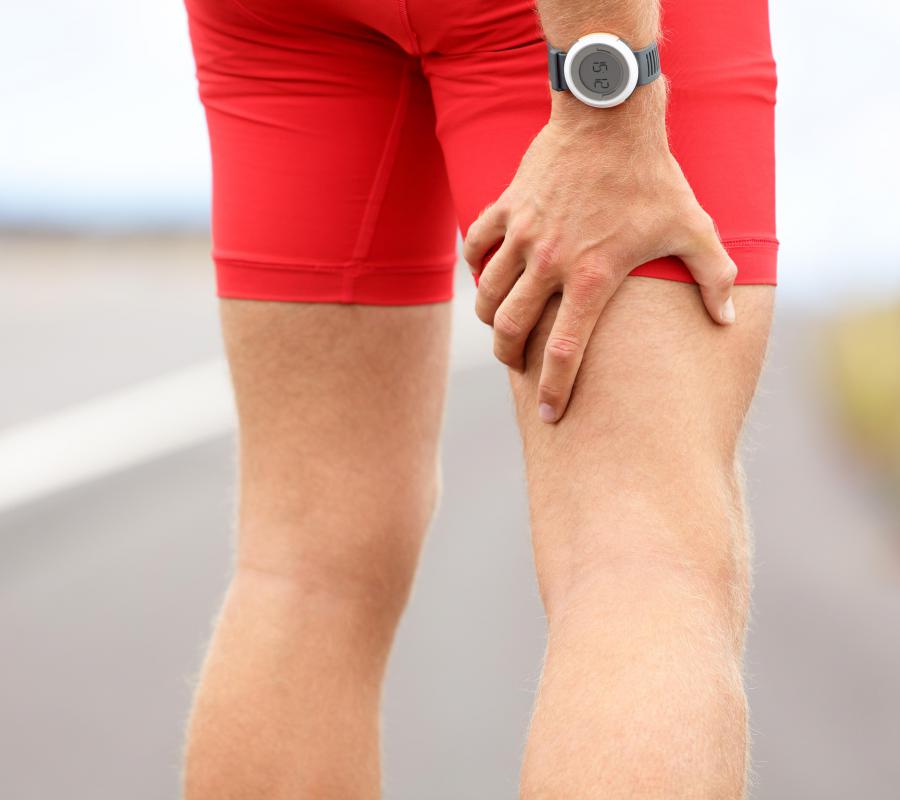At TheHealthBoard, we're committed to delivering accurate, trustworthy information. Our expert-authored content is rigorously fact-checked and sourced from credible authorities. Discover how we uphold the highest standards in providing you with reliable knowledge.
What are the Different Types of Muscle Disease?
The common types of muscle disease are the neuromuscular disorders such as multiple sclerosis and myasthenia gravis, and the conditions that develop within skeletal muscle itself, called myopathies. Neuromuscular diseases afflict the communication between muscles and the nerves that control their movement, and are often progressive and fatal. Some myopathies are hereditary diseases, like muscular dystrophy, causing gradual weakness and loss of muscle tone that sometimes leads to paralysis. Muscle spasms and cramps are not specific types of illness, but can be caused by metabolic problems or injury.
The different types of muscle disease are classified according to their anatomical source, whether in the muscles, in the nerves that control them, or in the surrounding connective tissue. Many muscle diseases are neuromuscular in origin. These can develop from problems at the junctions where nerves join muscle, normally signaling for their contraction whenever the body moves. Pathologies may also be caused when the parts of the brain and spinal cord that oversee muscular movement are damaged or otherwise impaired, altering muscle tone to become either spastic or rigid. Many forms of neuromuscular disease are inherited, though some rare, often terminal, conditions like amyotrophic lateral sclerosis seem to have a sudden onset.

Myasthenia gravis is a disease that occurs when the nerve that supplies a particular muscle is attacked by an overactive immune system, blocking its signals at the neuromuscular junction, and causing the loss of voluntary control there. Multiple sclerosis is a disease of the nervous system that destroys the insulation surrounding nerves, preventing the brain from sending signals to the body. When the muscles cease to receive communication from nerves, they cannot function, and they atrophy, leading to a loss of control and eventual degeneration.

Some frequently occurring muscle disease types — the myopathies — result from non-neurological causes, such as an inherited weakness of the proteins that make up the muscular fibers. In order for normal movement to happen, these fibers must remain strong and be able to contract when the adjacent nerve sends them a signal to do so. Muscular dystrophies involve defects in a gene, resulting in impaired production of a protein needed for normal contraction. They lead to progressive loss of muscle control, causing symptoms that include weakness and impaired movement, and classic facial problems like drooping eyelids and drooling.

Cramping and muscular spasms are not considered muscle disease themselves but are regarded as symptoms of underlying disorders or the result of an injury. Cramps, for instance, are painful and involuntary contractions of a muscle, and often affect the quadriceps of the thigh, the abdominal muscles, and the lower calves. They are sometimes caused by dehydration or by lactic acid build-up during intense bursts of athletic activity. Bacterial infections such as tetanus cause severe rigidity and locking of the muscles.
AS FEATURED ON:
AS FEATURED ON:


















Discussion Comments
I guess about everyone knows that ice and massages are great for muscle soreness and pain, but did you know that coffee can help muscle pain, too? It can. There is so much negative talk about coffee and caffeine, but this is a good reason to have a cup every now and then if you have muscle soreness.
I don't have any miracle drugs or treatments for muscle diseases and disorders. Hopefully, advancements in medicine will one day take care of all of them. However, there are some simple things that people do to cope with the muscle pain and discomfort that comes from these diseases.
I have a friend who has a condition that causes his muscles to get inflamed and cause him pain. One of the things he does to help with the problem is he drinks cherry juice and eats cherries.
When he told me about the cherries, I thought this was just something that might have been in head, rather than it actually doing any good. But since then, I have read about a scientific study that says that some of the compounds in cherries might actually help with muscle soreness.
The last paragraph in this article talks about cramps. Speaking from experience, I have to say cramps are one of the worst symptoms of dehydration. I get cramps often when I play sports. I wish there was a cure for them, a magic pill that would instantly make them go away.
Even when I drink water and sports drinks in an attempt to hydrate as I work out, the cramps often occur. This might also be linked to the build up of lactic acid while I am exercising, like the article mentions.
Post your comments